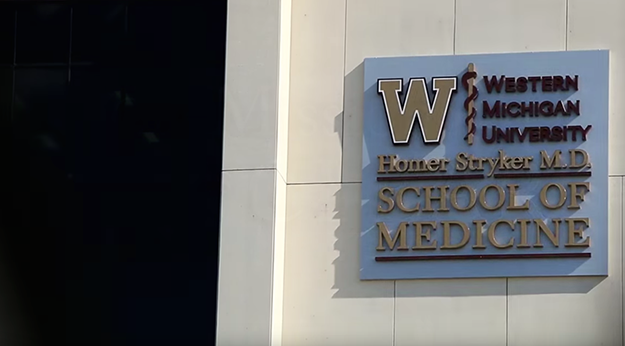
As WMed marks a major milestone this year – the medical school’s 10th anniversary – Founding Dean Hal B. Jenson, MD, MBA, and other leaders set out to answer an important question: What economic impacts has WMed had on the region, namely Kalamazoo and Calhoun counties?
To do so, in 2020, they engaged the Regional and Economic Planning Services team at the W.E. Upjohn Institute for Employment Research. The team collected data from the medical school and surveyed medical students. That data was the foundation of a recently released report from the Upjohn Institute that shows the economic impacts of WMed are immense.
For fiscal year 2019-2020, the report highlighted that overall spending by WMed and its 337 students:
- Added 1,600 new jobs in 2020
- Provided an additional $115 million in personal income to the two-county region
- Fueled a $353 million increase in output or total sales in Kalamazoo and Calhoun counties
The report also noted that WMed spent more than $93 million on labor and operations in 2020, a figure that was likely affected by the impact of the COVID-19 pandemic on consumption patterns and supply chains.
The team from the Upjohn Institute also said that, holding all things constant, the estimated impact of the medical school in 2020 is likely to be repeated in future years. However, they also cautioned that 2020 was an unusual year and it’s unknown, at this point, the extent to which personal spending and consumption preferences have been affected by the COVID-19 pandemic.
“When I came to Kalamazoo 10 years ago, we were determined and steadfast in our goals to make WMed a beacon for medical education, research, and compassionate patient care,” said Dr. Jenson, who is set to retire in June. “Our work in each of those areas has had a palpable and positive impact on the communities we serve. And this report from the Upjohn Institute confirms that the presence of the medical school has had a positive impact in another way by adding to the economic vitality of the region.
Dr. Jenson added, “I’m enormously proud of the work we’ve done together at WMed. This report measures the financial impact that our work has had on the broader community. Our success as a medical school is truly a community success.”
